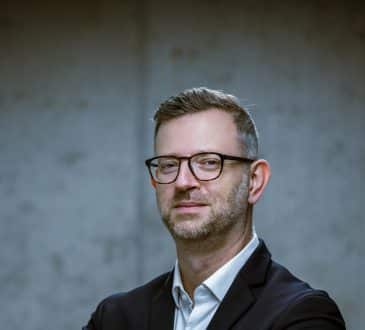The Role of DEI in 2024 and Beyond: A Global Perspective and Forecast

News headlines in the U.S. over the past few years indicate that the commitment to DEI seems to be waning. A recent LinkedIn analysis studied over 500,000 C-suite hirings between 2019 and 2022 and found that the hiring of Chief Diversity Officers (CDOs) declined in 2022 after experiencing significant growth in 2020 and 2021.
What is especially interesting – and concerning – is that CDOs were the only C-suite position to experience hiring declines in 2022. A Glassdoor survey revealed that access to Diversity, Equity, and Inclusion (DEI) programs increased to 39% in 2020 before peaking at 43% in 2021, falling to 41% in 2022.
Is this what we should expect in other parts of the world? What does the future hold for DEI outside of the US? While it is always difficult to predict what the future holds in a field that is continually evolving, here are some of the possible trends we expect to see in 2024 and beyond:
- Global growth of intersectional DEI efforts
While companies in the US may be experiencing DEI fatigue, DEI is only just beginning to take root in many other parts of the world, like Asia, and is gaining interest in Europe. The resurgence of Black Lives Matter in 2020 and the #MeToo movement in 2017 were certainly drivers of DEI efforts in the US and UK. However, these movements had varying levels of impact in other parts of the world. While they certainly propelled large global organizations to put DEI on the table, what we will see in the coming year(s) will be DEI efforts taking root not just in large companies but also in mid-sized sectors driven by more recent localized DEI movements. We will also see a greater emphasis on a broader and more intersectional approach to DEI. To date, the focus in many parts of the world has largely been on ensuring that organizations are working more towards binary gender balance across the hierarchy driven by localized #MeToo movements. This narrow view of DEI is also the result in Europe of data protection regulations that constrains the forms of data that can be collected, limiting it to just gender identity and nationality. It is only in the recent past that we have seen an increase in global conversations around non-binary and transgender identities, ethnicity and race, age, sexual orientation, invisible disabilities and religion with companies using self-identification surveys to collect more intersectional data on their employees.A recent report by the EU Agency for Fundamental Human Rights paints a grim picture: 36% of immigrants and descendants of immigrants in the EU have experienced discrimination in the past twelve months, and 47% have experienced discrimination in the past five years. This discrimination is predominantly experienced on the job or when looking for a job, in the education sector, and in the housing market. In India, the recent rulings by the Supreme Court reflect greater pressure to address LGBTQ+ rights in workplaces and society. Growing awareness of neurodiversity as well as religious discrimination, including Islamophobia and antisemitism, is fuelling the move towards diversifying diversity across multiple dimensions. These movements and increased awareness are only just beginning in many parts of the world, and leaders across the world should be prepared to embrace a more intersectional approach to DEI.
- Reframing of the Chief Diversity Officer role to Chief Impact Officer
With growing anti-woke rhetoric and far right governments coming into power, organizations are seeking ways in which they can continue to keep focused on DEI efforts without attracting the scrutiny and backlash from these groups for being woke. In my recent conversations with leaders across Europe, Asia, the US and UK, I am seeing a shift towards emphasizing the impact of DEI efforts and linking it more concretely to ESG reporting. In light of this, it is likely that we might see the role of Chief Diversity Officer expanding into being a Chief Impact Officer role, linking DEI more intricately with social sustainability and business impact. This could be seen as a welcome move for DEI advocates who want to see leaders move their focus away from the financial end of the business to embedding DEI efforts within organizational structures and systems to drive social and business impact. - Focused DEI efforts on individual action
Over the past few years, companies have invested a great deal of time and resources into developing a solid DEI strategy and roadmap, conducting bias awareness training to block bias across the employee life cycle, product development, as well as marketing and customer service. While the journey in these areas is far from complete in addressing the structural and institutional bias at play, we will see companies emphasizing the need for individual action to nurture inclusive workplaces. As structural and systemic change takes root, pockets of growing vocal resistance towards this change have emerged prompting leaders to realize that inclusion is not felt in a DEI strategy or roadmap, inclusion is felt in our personal interactions with each other – and addressing personal action will be a key focus area moving forward. Empowering personal action and requiring every single employee to be an ally in nurturing inclusion will be a key focus for the years to come.
Written by Dr. Poornima Luthra.
Have you read?
Ranked: Biggest banks in the world in 2023.
These Are The Highest Grossing Films Of The 2023 Worldwide.
Revealed: Top Environmental Innovative US States, 2023.
Report: Best Countries for Cyber Security Professionals, 2023 (Average Salary).
Best CEOs in The Global Video Streaming Industry, 2023.
Ranked: World’s Best-Selling Champagne Brands, 2023.
Add CEOWORLD magazine to your Google News feed.
Follow CEOWORLD magazine headlines on: Google News, LinkedIn, Twitter, and Facebook.
This report/news/ranking/statistics has been prepared only for general guidance on matters of interest and does not constitute professional advice. You should not act upon the information contained in this publication without obtaining specific professional advice. No representation or warranty (express or implied) is given as to the accuracy or completeness of the information contained in this publication, and, to the extent permitted by law, CEOWORLD magazine does not accept or assume any liability, responsibility or duty of care for any consequences of you or anyone else acting, or refraining to act, in reliance on the information contained in this publication or for any decision based on it.
Copyright 2024 The CEOWORLD magazine. All rights reserved. This material (and any extract from it) must not be copied, redistributed or placed on any website, without CEOWORLD magazine' prior written consent. For media queries, please contact: info@ceoworld.biz
SUBSCRIBE NEWSLETTER








